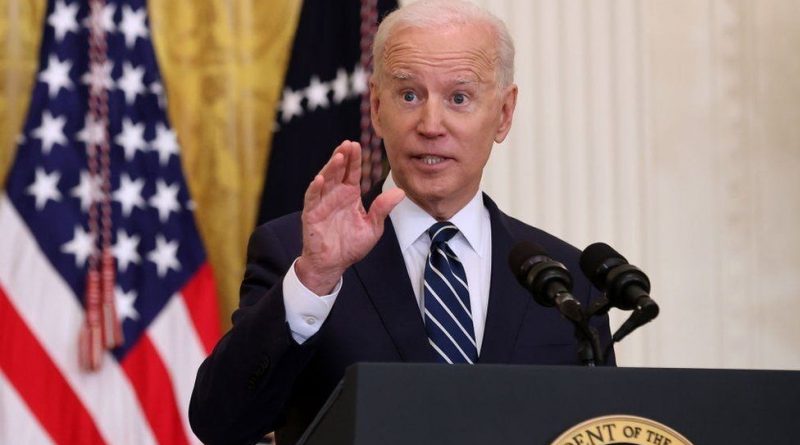Biden’s Goal for a Minimum Global Corporate Tax
G7 Leaders expected to back Biden’s calls for a global minimum tax on corporate profits.
Key Actors:
- Joe Biden; President of the United States
- Group of Seven Countries (G7); An organisation made up of Canada, France, Germany, Italy, Japan, the UK and the United States
- Group of Twenty Countries (G20); An international forum for 19 countries and the European Union
Biden’s Motivation for Tax Reform
On June 5, 2021, the finance ministers from the Group of Seven Countries agreed to back the Biden administration’s call to introduce a global minimum tax rate. The President hopes to reach a minimum tax rate of at least 15 percent.
Multinational corporations regularly hide their profits overseas to evade taxation. According to a 2018 study, 40 percent of the profits multinational corporations make outside their home country is shifted to “tax heavens” such as Ireland, Bermuda, and the Cayman Islands. For example, Ireland’s corporate tax rate is only 12.5%—much lower than most developed countries like the U.S., with a 21% rate. Therefore, corporate accountants log their revenues in these nations to pay lower taxes. Although the official U.S. rate is 21%, the Joint Congressional Committee on Taxation found that the amount companies actually pay is 8%.
Placing a minimum tax globally will decrease the incentive for American firms to evade taxation. The 15% minimum tax provides the Biden Administration with the funding to support his budget. Biden has his ambitious “Build Back Better” COVID-19 economic and social recovery plan, which he hopes to fund partially by increasing tax revenue from American corporations. Moreover, by disincentivising firms from shifting their assets and incomes overseas, Biden hopes to decrease unemployment in America.
Are Other Countries on Board with Biden’s Plan?
Governments around the world are eager for more tax revenue due to the large sums spent tackling the pandemic. The International Monetary Fund (IMF) states that the average country’s public debt had increased from 84 percent in 2019 to 99 percent in 2020. Therefore, Biden hopes that other nations’ governments’ need for extra revenue will encourage them to agree to a global corporate tax. Published estimates believe between $100 and $600 billion dollars will be collected by globally should the tax come into effect.
The IMF has supported the initiative. “The benefits are tremendous. Once we have it, the race to the bottom that is depriving emerging markets and developing countries from revenue is going to stop,” Kristalina Georgieva, managing director of the International Monetary Fund. The “race to the bottom” refers to countries competing to decrease their corporate tax to incentive corporations to operate in their country.
The European Union (E.U.) wants to take advantage of Biden’s proposal by insisting on a new “digital tax.” The E.U.’s argument for the tax is that digital companies, with little physical presence, are able to pay fewer taxes—only 9.5 percent compared to 23.2 percent for traditional businesses. The proposed digital tax involves America because many of the digital corporations are American—Apple, Facebook, Microsoft, and so on.
Domestic Challenges
Naturally, corporate leaders oppose Biden’s plans. They claim that the differences in tax codes between nations present an unfair advantage for some firms. There is still much ambiguity regarding the tax, which also makes businesses uneasy. “We don’t know what it applies to. We don’t know how it applies,” said Catherine Schultz, vice president for tax and fiscal policy at the Business Roundtable.
Even if other nations agree with Biden’s tax plan, the U.S. tax code must be updated to reflect the agreement. Congress will need to vote on new tax legislation. Likewise, each nation will have to update their tax laws in order for the global minimum tax to work.
American economist Jospeh Stiglitz has pointed out that 15% is too low for a global tax, and simply setting a rate won’t prevent companies from evading taxes by taking tax breaks or credits.
On the other hand, U.S. Republicans have called the global tax “crazy.” Senator John Barrasso of Wyoming called the plan “anti-competitive, anti-US, and harmful for us as we try to continue to grow the economy at a time when we’re coming out of a pandemic.” Others in the party believe it will simply be impossible to get all nations to agree to a minimum tax. Non-compliance from low-tax nations as well as China or Russia also bring about additional obstacles.
Bibliography
Hirsh, Michael. “Is Biden’s Global Corporate Tax a Revolution—or a Retreat?” Foreign Policy, 8 June 2021, https://foreignpolicy.com/2021/06/08/biden-global-corporate-tax-reform-analysis/.
Lynch, David J. “Biden Set for G-7 Boost in Bid for All Nations to Impose Minimum Global Corporate Tax.” Washington Post, 31 May 2021. www.washingtonpost.com, https://www.washingtonpost.com/us-policy/2021/05/31/global-minimum-corporate-tax-biden-g7/.
Rushe, Dominic, et al. “Republicans Threaten to Sink Biden’s G7-Backed Plan to Fix Global Tax System.” The Guardian, 9 June 2021, http://www.theguardian.com/business/2021/jun/09/republicans-threaten-g7-joe-biden-global-tax.
White, Sara. “EU Plans to Debate Proposals for Digital Tax | Accountancy Daily.” Accountancy Daily, 28 Apr. 2021, https://www.accountancydaily.co/eu-plans-debate-proposals-digital-tax.
_117895465_06ffc346-865c-4109-8912-654957eb9bfa.jpg (976×549) (bbci.co.uk)

